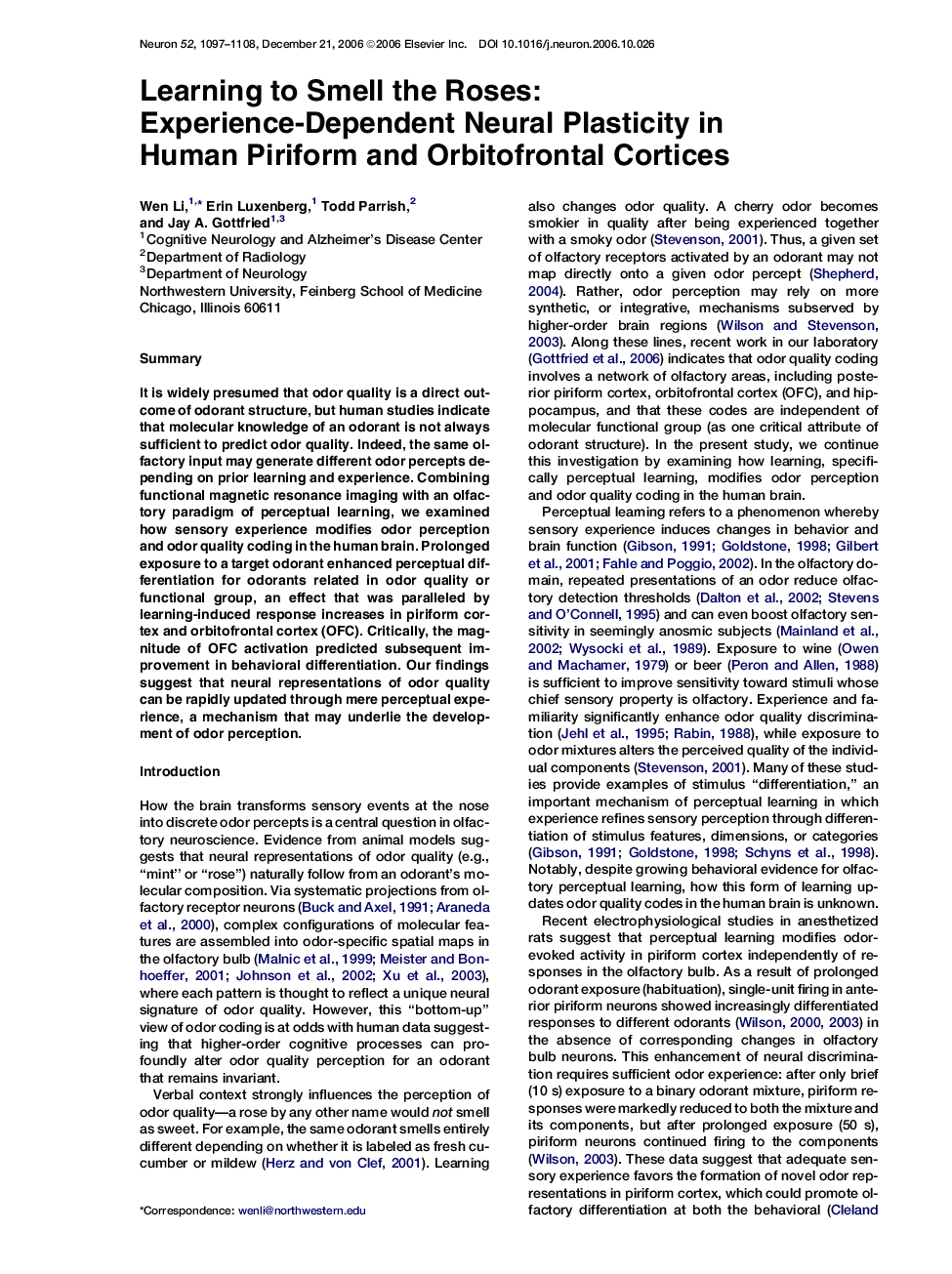| Article ID | Journal | Published Year | Pages | File Type |
|---|---|---|---|---|
| 4323032 | Neuron | 2006 | 12 Pages |
SummaryIt is widely presumed that odor quality is a direct outcome of odorant structure, but human studies indicate that molecular knowledge of an odorant is not always sufficient to predict odor quality. Indeed, the same olfactory input may generate different odor percepts depending on prior learning and experience. Combining functional magnetic resonance imaging with an olfactory paradigm of perceptual learning, we examined how sensory experience modifies odor perception and odor quality coding in the human brain. Prolonged exposure to a target odorant enhanced perceptual differentiation for odorants related in odor quality or functional group, an effect that was paralleled by learning-induced response increases in piriform cortex and orbitofrontal cortex (OFC). Critically, the magnitude of OFC activation predicted subsequent improvement in behavioral differentiation. Our findings suggest that neural representations of odor quality can be rapidly updated through mere perceptual experience, a mechanism that may underlie the development of odor perception.
